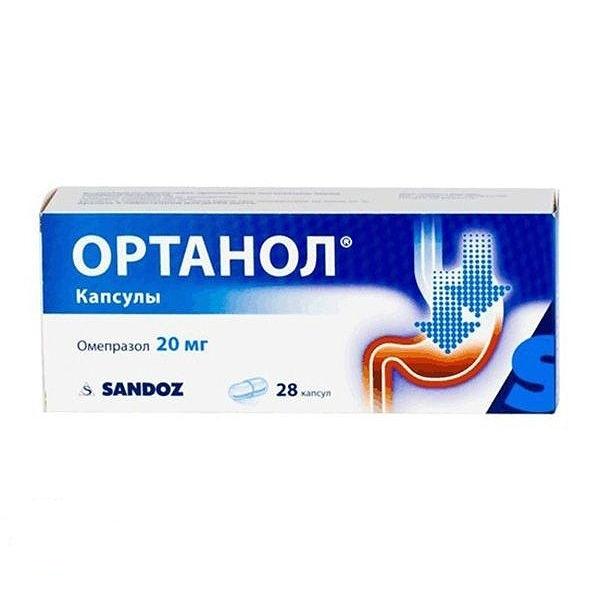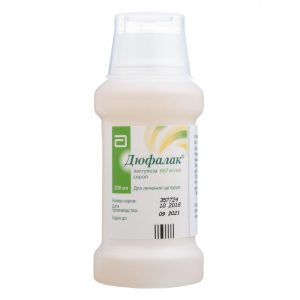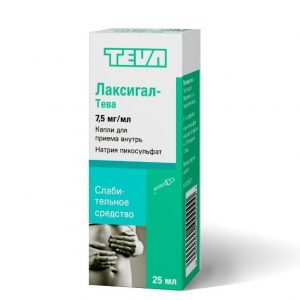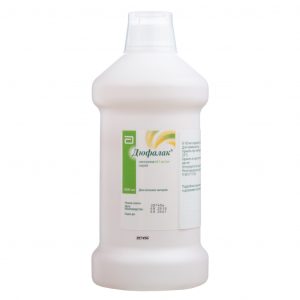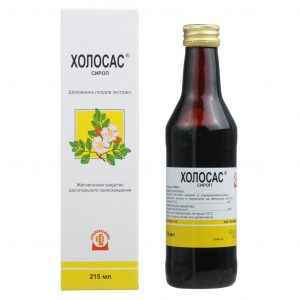Description
Packing
28 pcs
Pharmacological action
Orsoten is a specific inhibitor of gastrointestinal lipases with a long-lasting effect. It has a therapeutic effect in the lumen of the stomach and small intestine, forming a covalent bond with the active serine region of the gastric and intestinal lipases. Inactivated in this way, the enzyme loses its ability to break down dietary fats in the form of triglycerides into absorbable free fatty acids and monoglycerides. Since undigested triglycerides are not absorbed, the intake of calories in the body decreases, which leads to a decrease in body weight.
The therapeutic effect of the drug is carried out without absorption into the systemic circulation. The action of orlistat leads to an increase in the fat content in feces already 24 48 hours after taking the drug. After discontinuation of the drug, the fat content in feces usually returns to its original level after 48 72 hours.
Pharmacokinetics
Absorption. The absorption of orlistat is low. 8 hours after ingestion of a therapeutic dose, unchanged orlistat in the blood plasma is practically not determined (concentration –
Distribution. In vitro orlistat binds to plasma proteins by more than 99% (mainly lipoproteins and albumin). In minimal amounts, orlistat can penetrate into erythrocytes
Metabolism Orlistat is metabolized mainly in the intestinal wall with the formation of pharmacologically inactive metabolites: the enzyme loses its ability to break down dietary fats in the form of triglycerides into absorbable free fatty acids and monoglycerides. Since undigested triglycerides are not absorbed, the intake of calories in the body decreases, which leads to a decrease in body weight.
The therapeutic effect of the drug is carried out without absorption into the systemic circulation. The action of orlistat leads to an increase in the fat content in feces already 24 48 hours after taking the drug. After discontinuation of the drug, the fat content in feces usually returns to its original level after 48 72 hours.
Pharmacokinetics
Absorption. The absorption of orlistat is low. 8 hours after ingestion of a therapeutic dose, unchanged orlistat in the blood plasma is practically not determined (concentration –
Distribution. In vitro, orlistat is more than 99% bound to plasma proteins (mainly lipoproteins and albumin). In minimal amounts, orlistat can penetrate red blood cells.
Metabolism. Orlistat is metabolized mainly in the intestinal wall with the formation of pharmacologically inactive metabolites: M1 (hydrolyzed four-membered lactone ring) and M3 (M1 with cleaved N-formylleucine residue).
Withdrawal. The main route of elimination is excretion through the intestines – about 97% of the accepted dose of the drug, of which 83% – orlistat unchanged.
Cumulative excretion through the kidneys of all substances structurally associated with orlistat, is less than 2% of the dose. The complete elimination time is 3-5 days. Orlistat and metabolites may be excreted with bile. T1 / 2 increases up to 3 hours.
In elderly patients, the rate of excretion decreases, bioavailability increases.
Indications
Symptoms of gastroesophageal reflux, such as heartburn, sour belching.
Pregnancy and lactation
The results of three prospective epidemiological studies (more than 1000 observations) showed that the use of omeprazole in pregnant women does not adversely affect the course of pregnancy and the health of the fetus / newborn. However, it is recommended that you consult a doctor before using the drug during pregnancy.
Omeprazole passes into breast milk. If necessary, the use of the drug during lactation should decide on the termination of breastfeeding.
Composition
1 capsule contains:
Active ingredient: omeprazole 20 mg
Excipients: hyprolose, a low-substituted MCC lactose anhydrous sodium croscarmellose povidone polysorbate 80 hypromellose phthalate dibutylsebacate talc
capsule shell: hypromellose carrageenan potassium chloride iron oxide red (iron oxide red (yellow) III iron oxide red (yellow iron oxide red (yellow) III iron oxide red (yellow) III) black oxide (E172), shellac, anhydrous ethanol, anhydrous isopropanol, propylene glycol, butanol, ammonium hydroxide, potassium hydroxide, purified water).
Dosage and administration
Inside, before eating.
Initial dose – 20 mg (2 capsules) 1 time per day. When the symptoms begin to disappear, the dose can be reduced to 10 mg per day and again increased to 20 mg once a day in case of repeated symptoms. You may need to take the drug for 3-4 days to achieve symptom relief.
The maximum daily dose should not exceed 20 mg.
The lowest effective dose should always be used. The maximum course of treatment is 14 days. The interval between 14-day courses of treatment without consulting a doctor should be at least 4 months.
If symptoms are not relieved within 2 weeks or worsen, consult your healthcare provider.
The capsule should be swallowed whole with a sufficient amount of liquid. If the patient cannot swallow the Orthanol ® capsule whole, you can dissolve its contents in a small amount of water or fruit juice (do not dissolve in carbonated drinks). The resulting solution of the drug should be drunk immediately after preparation, drinking an additional 1/2 cup of water.
Patients with impaired renal function: dose adjustment not required.
Patients with impaired liver function: consult with your doctor before use.
Elderly patients: although the metabolic rate of omeprazole in elderly people is reduced, dose adjustment when using the drug in a daily dose of 20 mg or less is not required.
Side effects
Allergic reactions: infrequently – urticaria, skin rash, itchy skin rarely – fever, angioedema, anaphylactoid reactions are very rare – eosinophilia.
From the gastrointestinal tract: often – nausea, vomiting, abdominal pain, diarrhea or constipation, flatulence infrequently – increased activity of transaminases and alkaline phosphatase rarely – dry mouth, stomatitis, gastrointestinal candidiasis, hepatitis (with or without jaundice) very rarely – liver failure (in patients with previous severe liver disease).
From the nervous system: often – headache infrequently – dizziness, paresthesia, drowsiness, insomnia rarely – agitation, reversible confusion, depression, taste disturbance very rarely – aggression, hallucinations against the background of a serious liver disease – encephalopathy.
From the skin: infrequently – dermatitis rarely – photosensitivity, alopecia are very rare – exudative erythema multiforme, Stevens-Johnson syndrome (severe erythema multiforme, characterized by the appearance of spots and blisters on the skin and mucous membranes against a background of high temperature and joint pain), toxic epidermal necrolysis.
From the sensory organs: rarely – visual impairment.
From the musculoskeletal system: rarely – myalgia, arthralgia very rarely – muscle weakness.
From the respiratory system: rarely – bronchospasm.
From the urinary system: rarely – interstitial nephritis.
From the hemopoietic organs: rarely – leukopenia, thrombocytopenia very rarely – agranulocytosis, pancytopenia.
Other: infrequently – peripheral edema rarely – increased sweating, hyponatremia very rarely – hypomagnesemia, gynecomastia.
Drug Interaction
You should consult your doctor before taking Ortanol ® for treatment with one or more of the medicines listed in this section.
When co-administered with omeprazole, there may be an increase or decrease in the absorption of drugs whose bioavailability is largely determined by the acidity of gastric juice (including erlotinib, ketoconazole, itraconazole, iron and cyanocobalamin).
When administered with omeprazole, a significant decrease in the plasma concentration of atazanavir may be observed. Concomitant use is possible only for the doctor’s appointment (correction of the dosage and regimens of atazanavir is performed if necessary).
Digoxin bioavailability when co-administered with omeprazole is increased by 10% (adjustment of digoxin dosing regimen may be required). Caution should be exercised when administering these drugs to elderly patients.
With the use of omeprazole with clopidogrel, a decrease in the antiplatelet effect of the latter is observed.
Increased plasma concentrations and increased T1 / 2 of warfarin, cilostazol, diazepam, phenytoin, as well as other drugs metabolized in the liver by CYP2C19 isoenzyme may be required when co-administered with omeprazole (may require dose reductions of these drugs).
Omeprazole, when co-administered, increases the plasma concentration of tacrolimus, which may require dose adjustment.
Increased plasma concentrations of saquinavir / ritonavir up to 70% are observed with omeprazole concomitant administration, while the tolerability of treatment with HIV patients is not impaired.
Co-administration with CYP2C19 and CYP3A4 isoenzyme inhibitors (such as clarithromycin, voriconazole) may lead to increased plasma concentrations of omeprazole, which may require dose adjustment of omeprazole in patients with severe hepatic impairment.
Inductors of CYP2C19 and CYP3A4 isoenzymes (eg rifampicin, Hypericum perforatum Hypericum perforatum) can increase the metabolism of omeprazole, thereby reducing its plasma concentration. lidocaine, propranolol, metoprolol, ethanol.
Overdose
Symptoms: dry mouth, nausea, vomiting, sweating, headache, drowsiness, confusion, impaired vision, tachycardia.
Treatment: symptomatic. There is no specific antidote. Hemodialysis is ineffective.
Storage conditions
In the dark place at a temperature of no higher than 25 ° C.
Expiration
2 Year
dosage form
Dosage
form capsules
